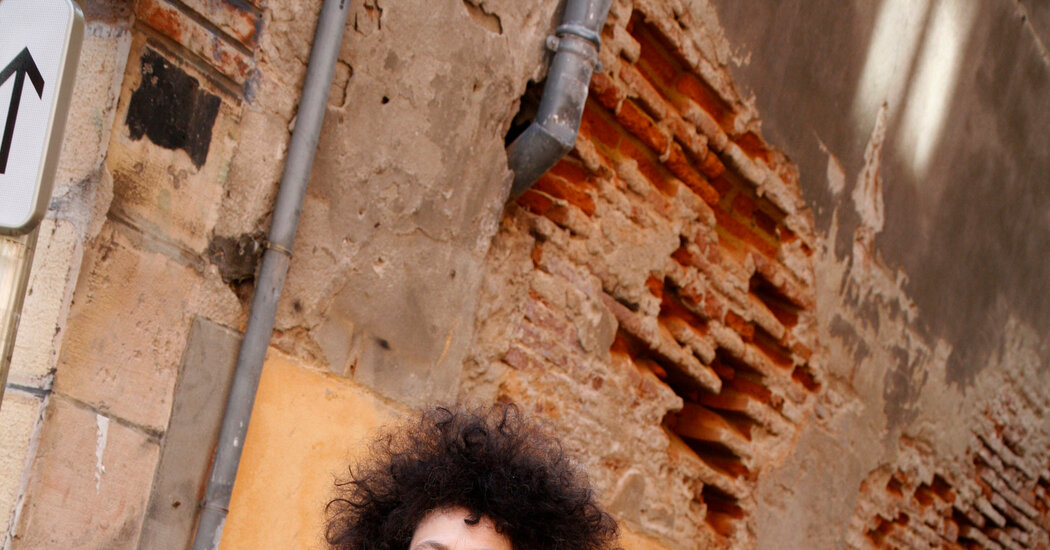Zoë Wicomb, an award-winning South African author who wrote from self-exile in Scotland and drew global praise for fiction that rendered with nuance and wit the life of mixed-race people like herself during and after apartheid, died on Oct. 13 in Glasgow. She was 76.
The death, at a hospital, was caused by a pulmonary embolism, said her husband, Roger Palmer.
Ms. Wicomb (WICK-um) grew up in a desert-like region of arid scrubland, within a country that enforced racial discrimination through law and terror. She said she left South Africa in 1970 to put “the whole oppressiveness” she’d felt far behind her, and settled in Britain. She taught secondary school before embarking on an acclaimed literary career in her 30s.
Her body of work was compact — four novels, two short-story collections and a book of essays — but she nevertheless became, the South African author and Nobel laureate J.M. Coetzee wrote in an email, “the most significant of the writers who quit South Africa in the 1970s to get away from the grinding pressures of apartheid.”
“From her eyrie in Scotland, yet with roots deep in pre-colonial Africa,” he wrote, “she explored in one book after another the modalities of South African experience, in language whose wit and irony masked a deep seriousness.”
Ms. Wicomb’s first book, “You Can’t Get Lost in Cape Town,” was published in 1987 and garnered enthusiastic reviews. The American author and future Nobel laureate Toni Morrison offered a book jacket blurb calling her work “seductive, brilliant” and noting “her talent glitters.” In a review for The New York Times, the novelist Bharati Mukherjee called her a “sophisticated storyteller who combines the open-endedness of contemporary fiction with the force of autobiography and the simplicity of family stories.”
A collection of loosely connected stories, “Cape Town” offers scenes from the life of Frieda Shenton, a mixed-race girl growing up under apartheid, from childhood to young adulthood. Despite the city’s breadth, the world available to Frieda is constrained to segregated sections of trains and buses and unpaved sides of the road, which dirties her shoes. As the novel’s title wryly suggests, she simply cannot get lost in Cape Town.
At one point, Frieda described a longing “for the veld of my childhood” where geographical landmarks “blaze their permanence.” “Plump little buttocks of cacti squat as if lifting the skirts to pee, and the swollen fingers of vygies burst in clusters out of the stone, pointing the way,” Frieda observes. “In the veld you can always find your way home.”
Ms. Wicomb’s first novel, “David’s Story,” was published in 2000 and is set during South Africa’s transition out of apartheid. The main character, David Dirkse, a leader in the military arm of the previously outlawed African National Congress, is disoriented in the new political era. As he sets out to uncover the history of his mixed-raced ancestors known as the Griquas, he finds himself on a hit list, possibly by embittered former colleagues or maybe by newer acquaintances.
The novel, Mr. Coetzee assessed at the time, was “beholden to no one in its politics” and “a huge step in the remaking of the South Africa novel.”
In 2013, Yale University awarded Ms. Wicomb the inaugural Windham Campbell Literature Prize for fiction, which came with a $150,000 purse.
“The challenge,” she said of her aims as a novelist in an interview that year with the website 2paragraphs, “is to capture marginal voices, thus not only a matter of my voice but, rather, one of polyphony, the many different, even contradictory, voices that engage with each other.”
“My project,” she added, “includes the recovery of minor, neglected or disparaged peoples and events.”
Zoë Charlotte Wicomb was born in Beeswater, in the Western Cape province, on Nov. 23, 1948, a few months after apartheid was formalized as government policy. She was the middle of three children of Robert Wicomb, a village schoolteacher and sheep farmer, and Rachel le Fleur, the daughter of a Griqua chief.
Afrikaans — the language of Dutch colonizers — was predominately spoken in the region, but she told The Scotsman newspaper in 2006 that her parents were committed to teaching her English so she would have a better chance in life than working in the region’s mines or as a domestic servant.
She wore out the only two works of English-language fiction available to her at home, Jane Austen’s “Pride and Prejudice” and Charles Dickens’s “Oliver Twist.” “I still love both,” Ms. Wicomb said in a 2017 interview for the website the Bookseller. “I was transported from the vulgarity of apartheid by books — books opened up different worlds, and brought freedom from an oppressive social order.”
She was around 13 when her mother died, and she was sent to live with an aunt to attend high school in a suburb of Cape Town. In 1968, she received a bachelor’s degree in English at the University of the Western Cape, then a segregated school. She said she was exposed to a larger canon of Western literary masterpieces, including works by Shakespeare and Chaucer, but life under apartheid remained suffocating.
“I had never been to a theater, seen an art film, or come across any Black writing before I went abroad,” she said in an interview with the scholar Andrew van der Vlies, who edited her 2018 collection, “Race, Nation, Translation: South African Essays, 1990-2013.”
After arriving in England, Ms. Wicomb said she was shocked by the overt racism she initially experienced. “At least with apartheid, one always knew one’s place,” she often remarked, according to Mr. Palmer. She taught at secondary schools while working toward a bachelor’s degree from the University of Reading in 1979. A decade later, she received a master’s degree in linguistics from the University of Strathclyde in Glasgow.
In what she described as a marriage of convenience after South Africa revoked her passport, she married a gay British friend, Martin Kaufman, in 1972, so she could more easily obtain a British passport for return visits to her home country.
She and Mr. Kaufman technically remained married until 2005. She filed for divorce that year so she could wed Mr. Palmer, an artist whom she first met in 1976 and with whom she had a daughter, Hannah. Her husband and daughter survive her, as do a brother, Neil, and three grandsons.
Ms. Wicomb followed Mr. Palmer for his teaching career, first to Nottingham, England, and then to Glasgow in 1987. Meanwhile, her discovery of other novelists who were women of color and from southern Africa, notably Bessie Head, inspired her to start writing.
Reading Ms. Head, she said, “gave me the courage or perhaps permission to write.”
She taught English and creative writing at the University of Strathclyde from 1994 to 2012 and also taught at universities in South Africa. She continued to dissect themes of dislocation and identity in a post-apartheid South Africa in two more novels — “Playing in the Light” (2006) and “October” (2014) — and a short-story collection, “The One That Got Away” (2008), set in Cape Town and Glasgow.
Her last novel, “Still Life” (2020), chosen by The Times as one of the 10 best historical novels of the year, examined the life of Thomas Pringle, the Scottish-born 19th-century writer often described as the English-language father of South African poetry.
As an author, Ms. Wicomb said she valued her independence and wanted to let her work stand on its own merit without public-relations machinery. She preferred working with small literary presses, avoided using literary agents and rarely granted interviews. She said her writing was a way to reconcile feeling like an émigré longing for but disconnected from her homeland.
“In my privileged position, I don’t have the right to be quibbling about what home is and where home is,” she told The Buenos Aires Herald in 2015. “Let’s say I’ve got two homes, let’s look at it not in terms of lack, let’s stop thinking about it as a problem. I can enjoy both places.”
The post Zoë Wicomb, Acclaimed South African Author, Dies at 76 appeared first on New York Times.




